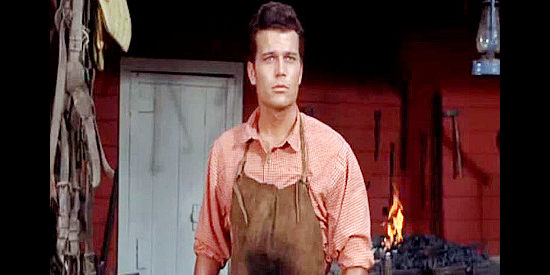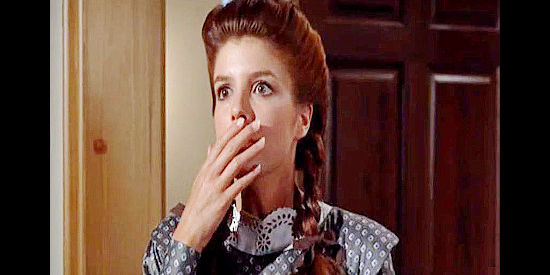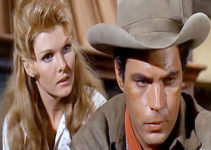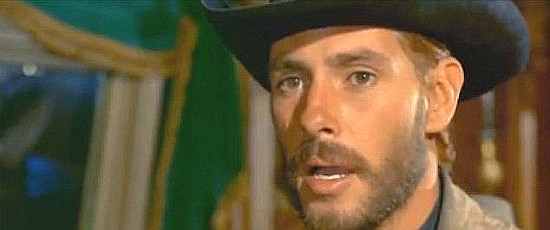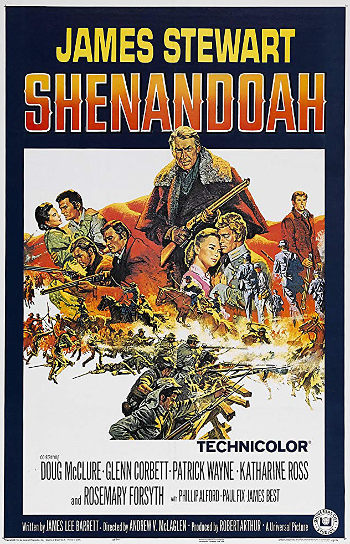 James Stewart is Charlie Anderson, a Virginia farmer determined to keep his family out of the Civil War, even as it rages around him.
James Stewart is Charlie Anderson, a Virginia farmer determined to keep his family out of the Civil War, even as it rages around him.
He’s a proud man, proud of the 500-acre farm he’s built, proud of the six sons and one daughter he’s raised and proud that he did it all with his own sweat and determination.
He is not a slave owner, doesn’t believe in owning slaves and doesn’t think he or his sons should fight so that others can hold onto their slaves.
When Rebel soldiers come to recruit his sons, he sends them away empty-handed. When federal agents show up to confiscate his farm animals, he and his sons beat them off.
But then his youngest son (Phillip Alford) is mistaken for a Confederate soldier and taken prisoner.
Suddenly, Charlie Anderson can’t ignore the war anymore.
He and his other children mount up, determined to reunite the family. All the while knowing the likelihood of finding one 16-year-old lad among thousands of soldiers and hundreds of prisoners is … well, about as unlikely as living in Virginia and escaping the Civil War untouched.
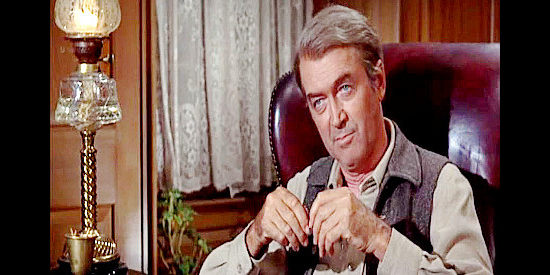
James Stewart as Charlie Anderson, quizzing Jennie’s beau Sam about their relationship in Shenandoah (1965)
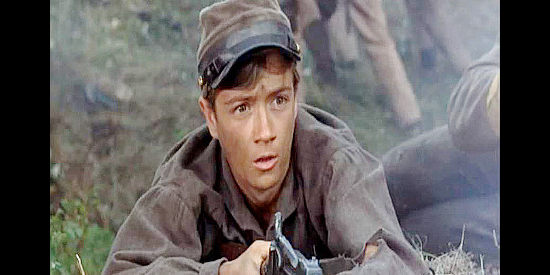
Phillip Alford as Boy Anderson, finding himself fighting in a war his father desperately tried to keep his family out of in Shenandoah (1965)
With a huge assist from star James Stewart, director Andrew McLaglen finds just the right touch with this film, a touch that includes a little humor, but plenty of reminders of the tragedy of war.
“The undertakers are winning,” Charlie Anderson says, kneeling by the grave of his long departed wife. And the undertakers will visit his family more than once, though not a single son marches off to fight.
Stewart’s capable supporting cast includes Glen Corbett as his eldest son; Patrick Wayne as the son who’s married to Katherine Ross and about to become a dad; and Rosemary Forsyth as the daughter who’s being wooed by a young Confederate officer (Doug McClure). Both women were making their film debuts.
This wound up being Stewart’s most commercially successful film of the 1960s. With American engulfed in the controversial Vietnam War at the time, “Shenandoah” was heralded for its anti-war message even though its star supported the war.
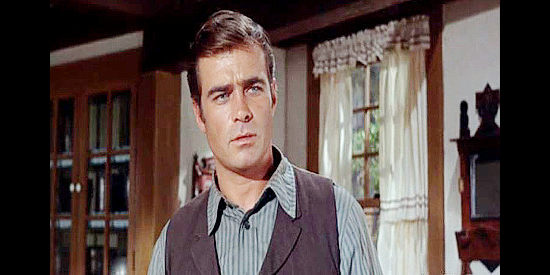
Glenn Corbett as Jacob Anderson, Charlie’s oldest sons, wondering what the family is going to do as Union troops draw nearer in Shenandoah (1965)
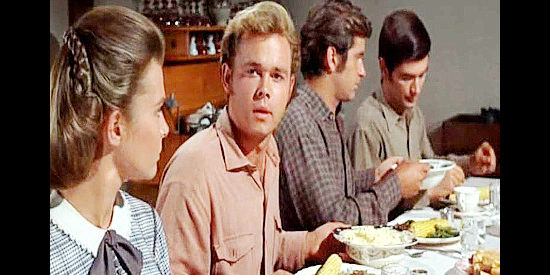
Tim McIntire as Henry Anderson, answering his father’s questions about his views regarding the Civil War in Shenandoah (1965)
But the film works just fine as pure entertainment too.
Directed by:
Andrew McLaglen
Cast:
James Stewart … Charlie Anderson
Doug McClure … Lt. Sam
Glenn Corbett … Jacob Anderson
Patrick Wayne … James Anderson
Rosemary Forsyth … Jennie Anderson
Phillip Alford … Boy Anderson
Katherine Ross … Ann Anderson
Charles Robinson … Nathan Anderson
Jim McMullan … John Anderson
Tim McIntire … Henry Anderson
Gene Jackson … Gabriel
Paul Fix … Dr. Witherspoon
Denver Pyle … Pastor Bjoerling
George Kennedy … Col. Fairfield
James Best … Carter
Tom Simcox … Lt. Johnson
Berkeley Harris … Capt. Richards
Harry Carey Jr. … Jenkins
Kevin Hagen … Mule
Dabbs Greer … Abernathy
Strother Martin … Train engineer
Kelly Thordsen … Carroll
Runtime: 105 min.
Score: Frank Skinner
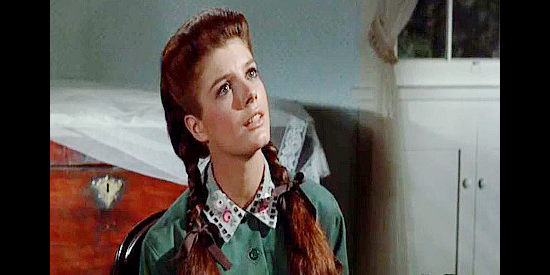
Katharine Ross as Ann Anderson, taking about the wonders of marriage to sister-in-law Jennie in Shenandoah (1965)
Memorable lines:
Jacob Anderson, Charlie’s eldest son, of the cannon fire: “They come closer every day, Pa.”
Charlie Anderson: “They on our land?
Jacob Anderson: “No, sir.”
Charlie Anderson: “Then it doesn’t concern us… does it?”
Charlie Anderson, saying grace for his family: “Lord, we cleared this land. We plowed it, sowed it, and harvest it. We cook the harvest. It wouldn’t be here and we wouldn’t be eating it if we hadn’t done it all ourselves. We worked dog-bone hard for every crumb and morsel, but we thank you Lord just the same for the food we’re about to eat, amen.”
Pastor Bjoerling: “Charlie Anderson, I wonder if you’d be good enough to tell me exactly why you even bother coming to services. Meaning no disrespect, of course.”
Charlie Anderson: “It was my wife’s last request, Pastor Bjoerling. Meaning no disrespect, of course.”
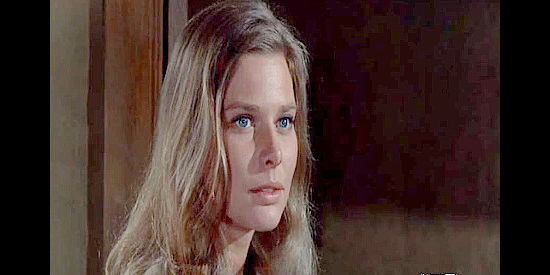
Rosemary Forsythe as Jennie Anderson, about to enjoy a long delayed wedding night with Sam in Shenandoah (1965)
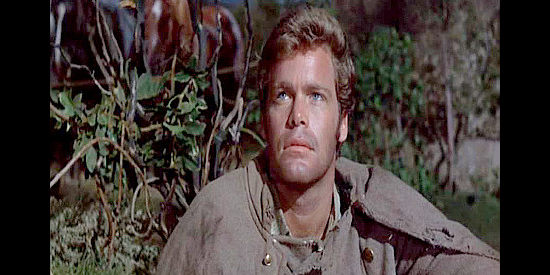
Doug McClure as Sam, Jennie’s husband, coming to understand the bond that holds the Anderson family together in Shenandoah (1965)
Charlie Anderson, after watching Lt. Sam romance his daughter Jennie: “Your sister is ripe and the pickers are here. Of course, I don’t suppose you know what I mean, do you Boy?”
Boy Anderson: “I’m not as dumb as you think I am, Pa.”
Lt. Johnson, a Confederate officer, upon stopping by the Anderson farm: “When are you going to take this war seriously, Mr. Anderson?”
Charlie Anderson: “Now let me tell you something, Johnson, before you get on my wrong side. My corn I take seriously, because it’s my corn. And my potatoes and my tomatoes and fences I take note of because they’re mine. But this war is not mine and I take no note of it.”
Lt. Johnson, trying to recruit Anderson’s sons for the Confederate cause: “Virginia needs all her sons, Mr. Anderson.”
Charlie Anderson: “That might be so, Mr. Johnson, but these are my sons. They don’t belong to the state. When they were babies I never saw the state comin’ around here with a spare tit.”
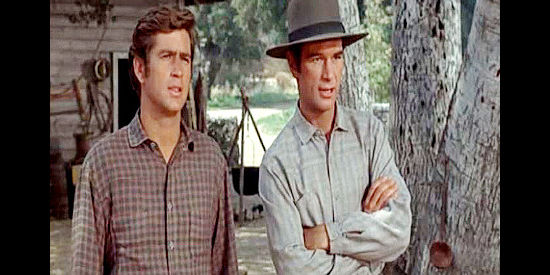
Jim McMullan as John Anderson and Charles Robinson as his brother Nathan, two of Charlie’s sons in Shenandoah (1965)
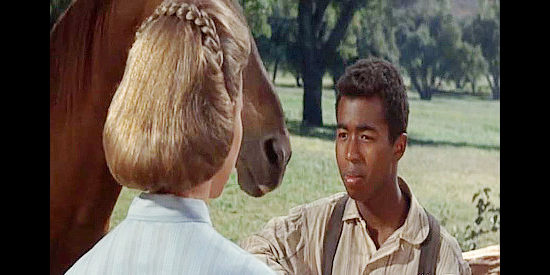
Gene Jackson as Gabriel, realizing he’s actually been freed by the Union troops in Shenandoah (1965)
Lt. Johnson: “Mr. Anderson, if you can sit in the middle of this war and not get touched, I congratulate you.”
Charlie Anderson, after a Rebel patrol is ambushed on his land: “What do you do with dead soldiers?”
Jennie Anderson, to a federal agent trying to confiscate horses from the Anderson farm: “I’m not in the habit of makin’ promises to strangers, mister, but you have my word on it. If you and these other animals don’t get off this farm this minute, I’m going to shoot you stone dead.”
Charlie Anderson, by his wife Martha’s grave: “I don’t even know what to say to you any more, Martha. There’s not much I can tell you about this war. It’s like all wars, I guess. The undertakers are winning. And the politicians who talk about the glory of it. And the old men who talk about the need of it. And the soldiers, well, they just wanna go home.”
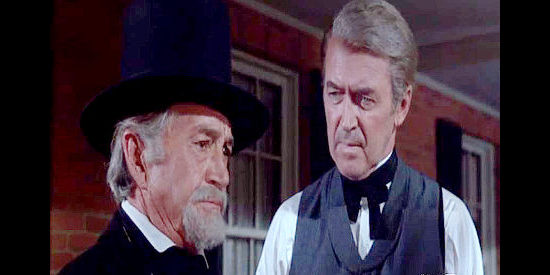
Paul Fix as Doc Witherspoon, reflecting on the high cost of war with Charlie Anderson (James Stewart) in Shenandoah (1965)
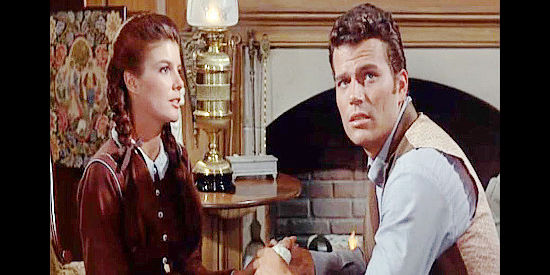
Katharine Ross as Ann Anderson, preparing for the arrival of her baby with husband James (Patrick Wayne) in Shenandoah (1965)
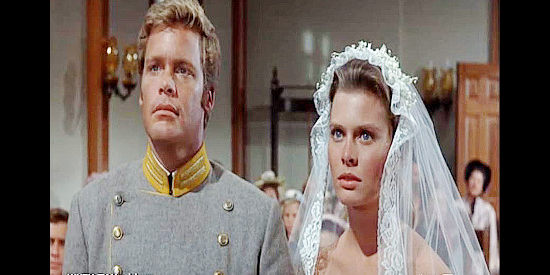
Doug McClure as Sam and Rosemary Forsythe as Jennie Anderson, about to be married in Shenandoah (1965)
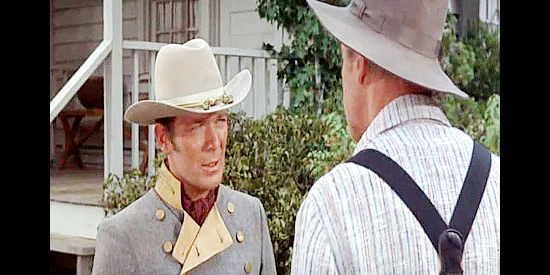
Tom SImcox as Lt. Johnson, showing up to recruit some of Charlie Anderson’s sons into the Rebel army in Shenandoah (1965)
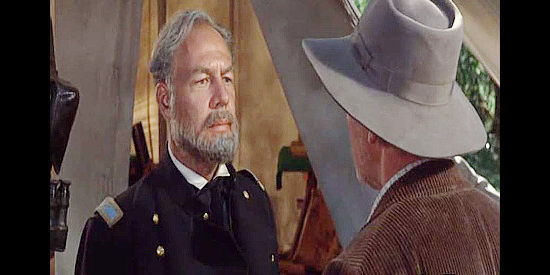
George Kennedy as Col. Fairchild, sympathizing with Charlie Anderson over a son gone missing during the war in Shenandoah (1965)
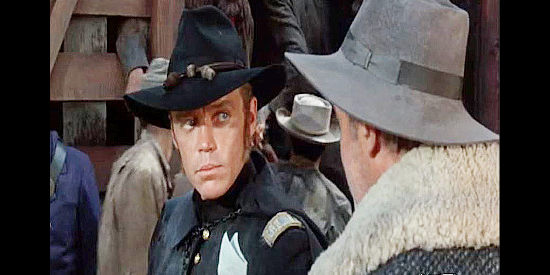
Berkeley Harris as Capt. Richards, denying Charlie Anderson a chance to look for his son among the captured Rebels in Shenandoah (1965)
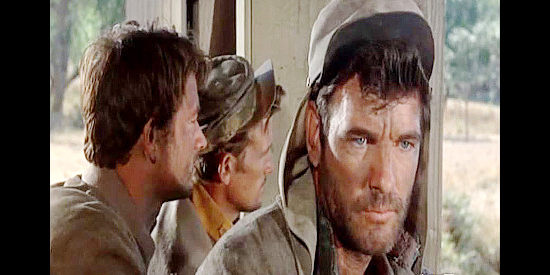
James Best as Carter, the Rebel soldier who convinces Boy Anderson to escape with him in Shenandoah (1965)
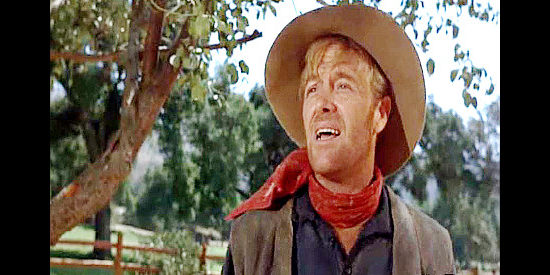
Kevin Hagen as Mule, a Rebel deserter who comes upon the Anderson home with two companions in Shenandoah (1965)
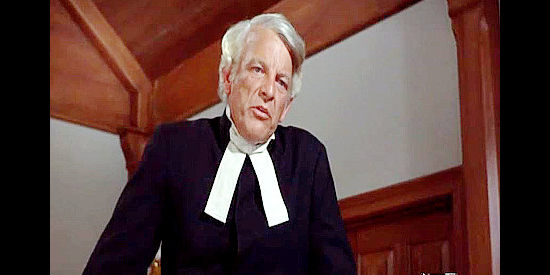
Denver Pyle as Pastor Bjoerling, scolding Charlie Anderson for allowing his family to be disruptive during service in Shenandoah (1965)
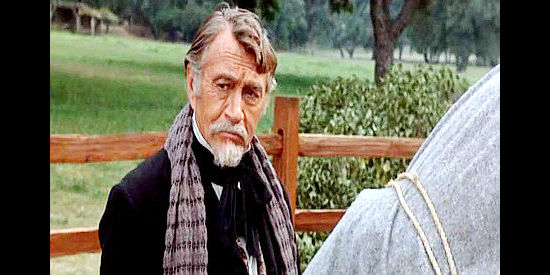
Paul Fix as Doc Tom Witherspoon, realizing Charlie Anderson has come to feel the pain of war too in Shenandoah (1965)
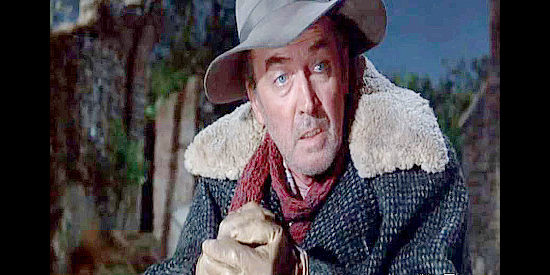
James Stewart as Charlie Anderson, explaining to his exhausted family why he just had to search for his youngest son in Shenandoah (1965)

